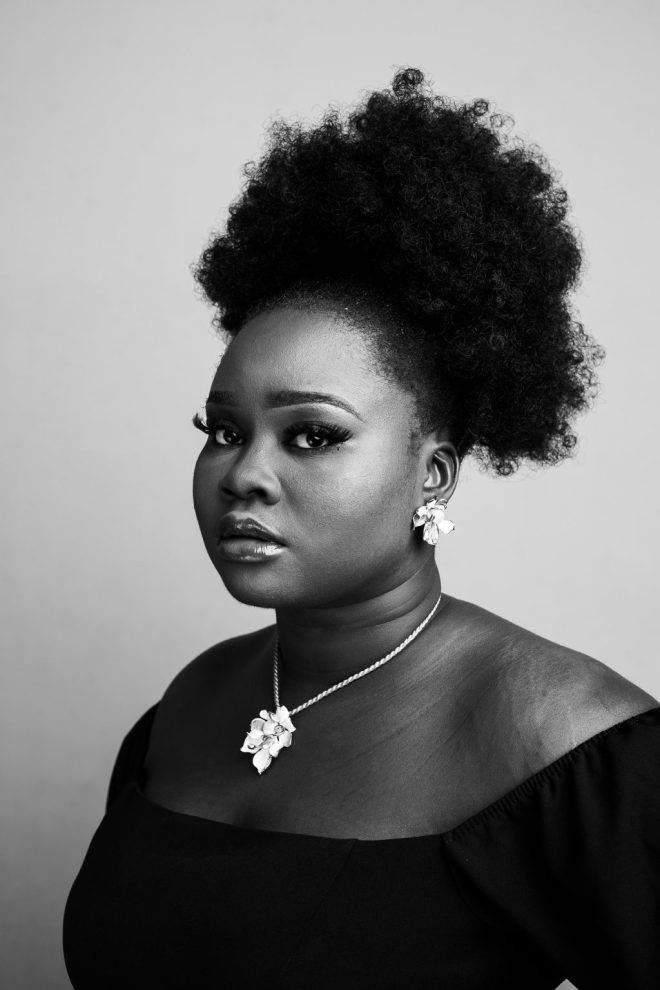Cast of Wonders 649: Little Wonders 46 – Seize Your Future
Show Notes
What the Water Gave Her was first published in Pop Goes the Page, May 2023
What the Water Gave Her
by Race Harish
The witch was a small man, but otherwise rather ordinary. He had white hair, kind eyes, and a fondness for darjeeling tea. He called himself Mother.
The directions were unclear. But it was unwise to question a witch so she pays that as little mind as she can. The slip of paper bearing the directions crumples in the tight clutch of her fist, the writing surely too smudged and sweat soaked to be of any use to her now. She is glad that she had the sense to commit it all to memory before she began the journey.
Again, she thinks. Go over it again.
- If you ever had a name, forget it. It is no use to you now.
- When the bullfrog croaks for the third time, wade into the river until you see him.
- He will give you a choice. Despite what he may tell you, it is a choice. Choose.
The river is a gaping maw when she reaches it. The reeds and rocks that line the bank form a fiendish grin. The water itself is the color of ink spilled across parchment and it blots out even the moon. It laps at her toes, gentle freezing nips, like snowfall, like delicate daggers.
A fat, bulbous frog lunges for the rock beside her, and croaks once.
Twice.
Three times.
She doesn’t breathe until the water goes over her head.
It turns out that she doesn’t have to wait long. In fact, when he arrives, she wonders for a moment if she is dreaming it, because nothing has changed. Like he’s been with her the whole time. With a shudder, she realizes that he has. He stares at her, all bones and sharp shoulders, all artless boyhood and innocence, all nursery rhymes and ghost stories, and she sees him for who he is: the child she came here to destroy.
I shall consume you, her wicked unborn son sneers. It is decided.
He opens his mouth. A baby’s cry. A hyena’s cackle. Wide as the river.
She beats him to it.
No. It isn’t.
What Doesn’t Kill You
by Susan Taitel
It started with the video. You know the one. Your first chart-topper. The concept was fully your own. You wanted to be a Kaiju, like in the movies you’d seen as a kid late at night as you wound down from a show. . You didn’t care that the monster was obviously a stunt man in a rubber suit, you couldn’t get enough of them knocking over buildings and stepping on cars with a satisfying crunch.
The record label loved your idea. They said you were going to be big and what was bigger than a monster that destroyed a city? But they nixed the monster costume; you were too pretty to hide in a rubber suit. Even without the costume, the music video was mostly how you envisioned it. You, as tall as a skyscraper, dancing through the streets, buildings quaking with every step you took. The locals fleeing in terror until your song got into them and, captivated by the hook, they began dancing along.
You were excited to film the part where you stomped all over San Francisco but they filmed the street scenes without you. Your part was filmed in a studio with a green screen. The end result looked low budget and faker than you expected, which your producers said was the point: those movies were also cheap, fake, cheesy. Just like you, they didn’t say, but plenty of others did.
The director made you squat over a model of the Golden Gate Bridge. You suspected it was so they could get a clear shot down your cleavage while still having a view of your ass. You didn’t like it but that didn’t seem to matter. And when you saw the final cut of the video with the extras looking up, up, up at your massive crotch, that’s when you first felt it: your skin constricting, making it hard to breathe.
“They didn’t see anything,” the director said. “You weren’t even there. They were looking at nothing.”
“The camera angle is key,” the producer added. “All the viewer sees is the skirt. It’s just implied that the people on the bridge can…”
“It’ll sell albums,” your manager told your mother.
It did.
But there were concerns. You were too young, just nineteen. (You wondered if you were the only one who remembered the website that counted down to the minute you turned eighteen. But nineteen, that was too young?) The media said you were being exploited. You joked that you were too highly paid to be exploited.
You were making a lot of money. You were told that you were making a lot of money. You bought a house for your parents. One that they chose, before putting their names on the deed and your name on the mortgage. You got to stay there sometimes, between tours and appearances.
People loved you. People hated you. But they talked about you either way. They discussed your clothes, your songs, your dance moves. They questioned if you were a good role model.
Your skin pulled tighter.
Maybe that was the Pilates.
Some said your voice was grating, too high and breathy. You had been a belter as a child, and it had damaged your vocal cords. Your skin was so tight now that you didn’t think you could belt if you wanted to. Your new voice sold more albums anyway.
You got a bad tattoo. A worse husband. Legally, you had been an adult for years but people still said you were too young. They started asking if you were making smart choices. You wanted to ask how smart their choices were at twenty-three.
You fainted backstage at an award show and looked disoriented during an impromptu press conference. You flipped off photographers and threw a shoe at a fan who tried to jump into your car with you. You were arrested. They found pills. You went to rehab.
“We are scared for her,” people said. You wanted to explain about your skin shrinking and choking you but that didn’t seem to be what they were worried about. You were out of control, why wasn’t someone watching out for you?
They said it loud enough and often enough that someone was assigned to watch out for you. You were under control. Your choices were taken out of your hands and given to your managers and handlers and the corporation that was your family and still people were scared for you.
And still, your skin held you as tightly as a straitjacket.
You had better posture now.
The money still came in.
You were allowed to perform. Had to perform. There were so many mortgages balanced on your back. Not just your parents’ and employees’ but producers’ and executives’ and casino owners’. They relied on you. They didn’t notice that your skin was tearing at the seams. Or they didn’t care.
No one said you were too young anymore.
You had to choose to ask for your choices back. It wasn’t easy. No one told you what to do or who to ask. You pled your case while your skin attempted to strangle you. Somehow, you won. You got to decide where you lived and when you worked and if you spoke to the world.
Your skin loosened its grip.
You could breathe.
Until they come to your door again. They’re concerned. Scared for you. Are you isolating yourself? Are you making bad choices?
Your skin rips apart. All this time, it wasn’t getting tighter. You were getting bigger. You leave behind the husk of your old skin, and your new scales gleam in the sun. Your voice has changed again. Now it’s a roar that booms from deep in your chest; you’ll have no trouble reaching the cheap seats. You stretch new muscles and thrash an enormous tail.
You start walking west. You still haven’t seen San Francisco. You may dance when you get there. Or smash a bridge.
Will they still be scared for you?
Host Commentary
A dark story, this one. Women have always fought hard for the right to bodily autonomy, and with very good reason – few things are as dangerous as pregnancy, or as life-altering as motherhood. It can be a blessing for many, but that isn’t always the case, and I believe no one should be forced through the physical ordeal of pregnancy unwillingly. But even here, the choice remains uncertain. The protagonist seizes the right to make her own choice in this story, but does she face a true antagonist in her unborn child, or just her own fears? The conflict is left unresolved and open to interpretation, and I like that very much: we don’t see how it plays out, what she learns or discovers about her foe, and whether the triumph of her choice and her refusal to be consumed is one of expulsion or re-evaluation. That, I think, is just as it should be. It’s her choice, after all.
The exact real-world inspiration for this piece might be fairly obvious, but it’s sadly not the first and unlikely to be the last time an artist will find themselves exploited by the people around them. Personal growth often comes into conflict with the expectations that others have of us. As young adults, the social pressures to perform gender and adulthood in a particular way are bad enough, without the public eye and management teams added to the mix. Breaking free of those chains isn’t easy, but you can’t keep a good kaiju down. Grow into your inner behemoth, and roar.
About the Authors
Race Harish

Race Harish is a high school student from New Jersey. Their work has previously been published in The Cloudscent Journal and Writer’s Circle Journal as well as in several local magazines. They draw inspiration from their own tangled relationship to girlhood and womanhood, their Indian roots, and the ugly anguish of teenage desire. When Race isn’t writing, one can probably find them obsessing over someone else’s writing, or lying awake just thinking about swords.
Susan Taitel

Susan Taitel likes stories more than people but likes people in stories the most. Which it turns out is everyone. She grew up in Chicago and now lives in Minnesota, a decision she comes to regret every November through March. She is a graduate of the Viable Paradise writer’s workshop. Her fiction has appeared in Galaxy’s Edge Magazine and Stupefying Stories.
About the Narrators
Mofiyinfoluwa Okupe

Mofiyinfoluwa Okupe is a young Nigerian writer and a reluctant lawyer. Through the mediums of poetry and personal essays, her work explores the themes of womanhood, memory and self. Her work majorly revolves around the complexity of human emotions and how we as human beings deal with them. Her work is published in The Kalahari Review, Agbowo and The IceFloe Press. Her Medium page is keenly followed and enjoys a healthy followership and engagement. Find her @fiyinskosko on social media
Emily E. Smith

Emily E. Smith is an anesthesiologist by trade and is now enjoying the unique experience of training new anesthesiologists when she isn’t raising a small child or narrating podcasts or reading or listening to audiobooks or gardening or building things or repainting the house. She is always busy but always has time for one more story.



